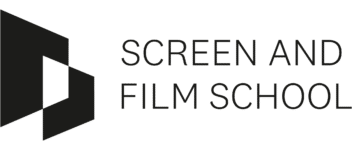In conversation with wildlife cinematographer Alex Sletten
Screen and Film School Manchester were thrilled to host an exclusive masterclass for our applicants and enquiries in March with award-winning filmmaker and cinematographer, Alex Sletten.
Alex Sletten is an award-winning filmmaker and cinematographer who has been filming documentaries worldwide for the last two decades. Specialising in natural history documentaries and long lens work with his company Red Rock Films, his credits include Disney +, Netflix, BBC, National Geographic, Smithsonian Network and Discovery, capturing everything from exciting interactions between bears and wolves in the Arctic Circle to beautiful slow motion shots of falcons in the Arabian Desert.
Joining our audience of applicants from his filming location between Finland and Russia, Alex braved the -44 degree weather by sheltering in his car to answer all of our questions via Zoom. Interviewed by long-time friend and our Manchester College Principal, David Thompson, Alex discussed his career thus far, his favourite moments as a wildlife cinematographer, and the importance of being taught by industry professionals.
Here are some of our favourite insights from this incredible and truly unique masterclass.
On the importance of being taught by industry professionals
“You can be the best filmmaker and the best camera man, but you need to know people and have connections and a circle around you. Going to a film school that has that to offer, and has professional industry tutors can be hugely beneficial. You don’t NEED to go to film school to be a good filmmaker, but it’s a short cut- it’s about networking. Getting face time with industry professionals cannot be underestimated. Another important thing is your other students: John from your class might be end up being head of a big company and be the one buying your projects- building relationships is so important.”
On working with Hollywood names for the Disney+ original: Secrets of The Whales
“All of us have watched Titanic and Avatar and then suddenly you’re on a Skype call with James Cameron as the executive producer… It’s weird because as a wildlife filmmaker, it’s very specialised and you don’t really have those dreams otherwise you’d have gone into Drama or other sides of filmmaking, but these things happen by chance and it’s quite surreal. Sigourney Weaver’s done a great job on narrating and it’s quite humbling and bizarre to be a part of a production with these big Hollywood names- but more and more it’s becoming more important for the networks to attach big talents to the films to get more viewership.”
How would he get the most out of Screen and Film School as a student?
“I’d really get to know my fellow students and find people to collaborate with: filmmaking is collaboration- if you have people who work in different areas you kind of have a mini production company! Get to know your area, connect with guests, try to be noticed, be available and be eager. If you have something unique to offer, it can put you ahead of people.”
On the environmental issues the world currently faces
“One thing that’s really frightening is often if you film a place and then you go back 15 years later, there can be situations where it’s been destroyed. I think we’re all aware that our natural world is struggling at the moment and has been for a long time. Up until recently as filmmakers I think we’ve been doing the natural world a disservice, because you go to places that are amazing; we go and document the areas where we know we can get great behaviour, but these are pockets that are left. Recently there’s been a movement of showing the other side, that it’s not all amazing and that’s really important with the work we do: we need to not just show that everything is amazing, and a lot of places are actually struggling when it comes to their wildlife.”
On the most difficult part of filming in North Canada
“Sleeping on the ice and hoping that the ice sheets don’t break and drift off. We had drift alarms- if the alarm went off you’d have to know where all your stuff was and quickly pack up and move, otherwise you might have to abandon your equipment and be rescued by helicopter!”
What advice would he give to his younger self?
“Be more social probably. It’s difficult because as a wildlife cameraman, you can be a hermit living in the woods but then you have to also have the social skills to sell your projects and network.”
You can see ‘Secrets of the Whales’ now on streaming on Disney + and Alex’s Netflix series ‘Penguin Town’ is released on 16th June.
A huge thank you to Alex Sletten, our Manchester College Principal David Thompson, and of course all of our wonderful applicants and enquiries for making this a session to remember!



